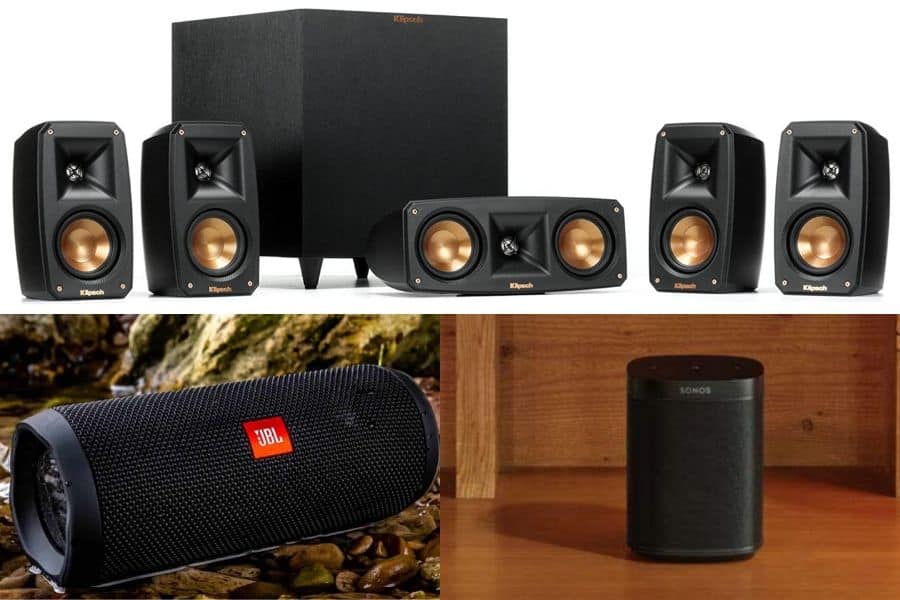
When it comes to purchasing a speaker system, the options seem endless these days. From smart systems to simple car radios, the way we enjoy our music and viewing entertainment can always be enhanced by a great sound system. But with so many options, how do you choose the best speakers for your needs?
Between Bluetooth, Wi-Fi, and wired speakers, which speaker system works the best? From a technical standpoint, the best speaker system is wired speakers with a reliable amplifier.
However, this answer can change dramatically depending on your specific needs in a speaker system. To learn what the best speaker is for every situation, be sure to read through the following debate about which home gadget system is the best!
How Do Speakers Work?
To start with, you should know how speakers work. According to The Master Switch, for sound to travel from its digital source (such as a CD or MP3) to the speakers on your walls, it needs to go through the following steps:
- Digital-to-analog conversion – Also known as a “DAC.” This takes all the digital data (represented with 0s and 1s, like The Matrix), and converts it into an analog signal (the actual soundwaves our ears can pick up).
- Amplified – An amplifier (or “amp”) then takes those soundwaves and boosts them until the soundwaves are at a level in which we can hear it with our naked ears.
This is true for every digital sound system (sorry vinyl!) and is the reason the debate between wireless and wired is so intense.
- In most cases, wired speakers can have an external amplifier play as a middleman to help control the loudness of the output sound (what you hear).
- For wireless speakers, this amplifier must be built into the system, giving no control over the sound output.
Bluetooth Speakers

Bluetooth speakers are part of a system in which two (or more) pieces of technology “speak” to one another wirelessly. They do not need to be connected to the internet to react to each other, which makes them a favorite among traveling options.
How Do They Work?
According to Jabra, Bluetooth speakers work by having your smartphone, tablet, or other music playing device send out radio waves, which are picked up by the small chip inside a Bluetooth compatible device. Once the radio waves are connected, the devices are considered “paired” and can share data, including soundwave data!
Pros of Using Bluetooth Speakers
When it comes to using home tech gadgets to set up your surround sound system, Bluetooth enabled speakers have quite a few advantages over both Wi-Fi enabled and wired speakers.
According to The Master Switch, here are some of those advantages:
- No Wires – It should come as no surprise that there are not as many wires involved when it comes to Bluetooth speakers. The only wiring you may have to worry about is for a power source, but that can sometimes be negated with batteries.
- Versatility – Bluetooth radio can pair with multiple devices, which means you can have multiple Bluetooth speakers enabled on one system. This means you can control all your Bluetooth speakers from one main center, usually an app.
- Portability – Because Bluetooth speakers do not need to be connected to the Wi-Fi nor any add-on accessories, they are very portable and perfect for beach trips!
- Multiroom Use – You can connect multiple devices to one control panel, which means you can have an array of Bluetooth speakers throughout multiple rooms. So, you can take your music from the kitchen to the living room with the touch of a button!
- Easy Setup – To start using a Bluetooth speaker, you only have to turn on the Bluetooth setting. The setup can take as little as three minutes!
Cons of Using Bluetooth Speakers
Although Bluetooth Speakers can be very useful on a day trip somewhere, there are a few disadvantages to using them for broadcasting your tunes.
From The Master Switch, here are some of the disadvantages you may encounter:
- No Control – Although you can control most Bluetooth speakers with an app, you cannot control the amplification or conversion. These factors come from external equipment that benefits best from a wired connection.
- Lower Quality Amps – Unfortunately, the design of Bluetooth speakers means that the amplifiers must be built into the speakers. This leads to the Bluetooth speakers not having as high quality of amps as a wired speaker would have.
- Loudness – The inability to control the amplification or conversion also means Bluetooth speakers cannot be as loud as their wired counterparts. Their volume levels are entirely dependent on the device’s amps, and their built-in speakers.
- Limited Range – In most cases, Bluetooth speakers can only connect up to 30 feet away from the sound source. After that, you may hear some interference, along with crackling from the loss of signal.
- Single Speaker Use – Although you can connect to multiple Bluetooth speakers with ease, you can only stream the sound to one speaker at a time.
Audio Quality
The audio quality of wireless speakers has long since been regarded as less than ideal in the audio world; however, today’s technology has elevated wireless speaker standards and their ability to transfer data. The larger the data that can be transferred from source to receiver, the higher the depth and detail of the sound will be.
The problem with transferring such substantial data information wirelessly is that the data usually needs to be compressed to a smaller format. This compression comes in the form of reducing the bit rate, thus ruining the sound quality. However, there is Bluetooth technology, like aptX, explicitly designed to address this issue. For the current Bluetooth speaker technology, there is no discernible loss in audio quality when compared to wired speakers.
Recommendations for Bluetooth Speakers
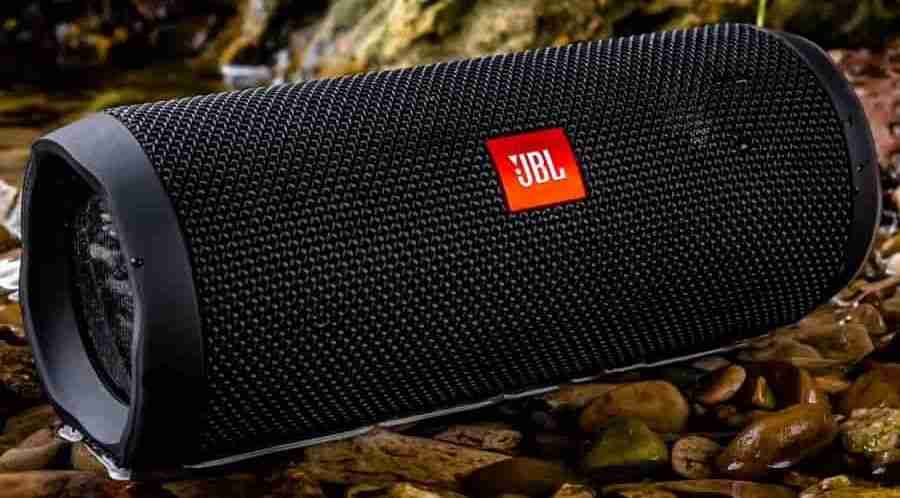
Since there are really a metric ton of options for Bluetooth speakers, here are my favorite top recommendations of quality units in this category:
- JBL Flip 4
- Portable
- Connect to over 100 JBL Connect+ Speakers
- 12H Playtime
- IPX7 Waterproof
- Suitable for Travel, Home and Outdoors
- Anker Soundcore
- Loud Stereo Sound
- 24-Hour Playtime
- 66 ft Bluetooth Range
- Built-in Mic
- Perfect Portable Wireless Speaker for iPhone, Samsung, and more
- OontZ Angle 3
- 10W+ Stereo Sound and Deep Bass
- 14-Hour Playtime
- Bluetooth 5.0
- 100ft Wireless Range
- AUX Support
- Built-in Mic
- JBL Xtreme 2
- Rugged and Waterproof
- Portable Wireless
- Loud Stereo Sound
- Enhanced Bass Speaker
- Bluetooth 5.0
- Built-in Mic
- IPX7 for Home Party, Shower, Outdoor, Travel
- Ultimate Ears WONDERBOOM
- Powerful and Less than 1 Pound
- Pair 2 at the same time
- Completely Waterproof
- 10 Hours Play Time
- IPX7 Portable Speaker for Home, Travel, Party
Wi-Fi Speakers
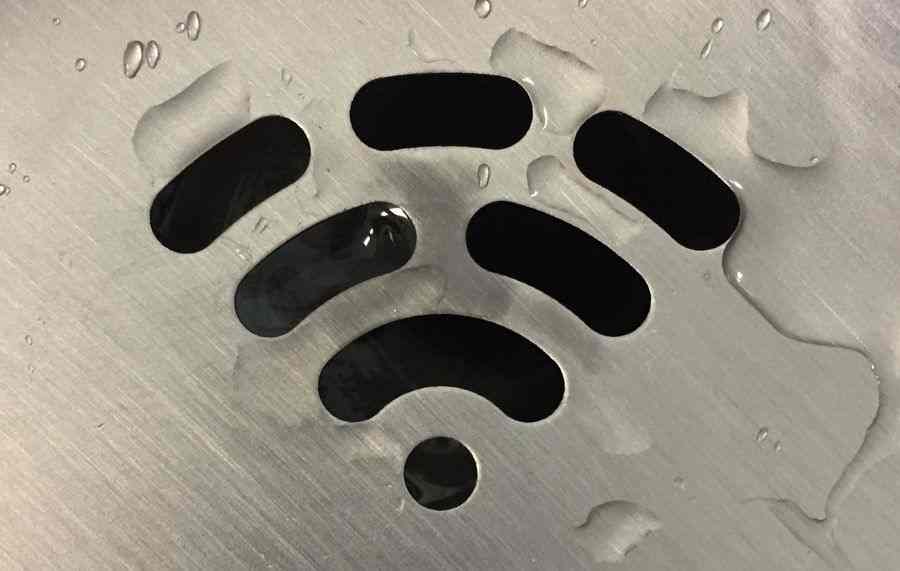
Wi-Fi speakers are another alternative to wired speakers. They connect to your already established internet system and can handle higher amounts of data transfer. This can give you a more stable signal over a broader range!
How Do They Work?
Wi-Fi speakers work by connecting to the source device from the home internet network. Instead of having to link from device to device like Bluetooth speakers, Wi-Fi speakers can be connected through a network and work simultaneously.
Pros of Using Wi-Fi Speakers
These home tech gadgets can take full advantage of your already established network, making them a great alternative to both wired and Bluetooth speakers. Plus, the market for Wi-Fi speakers has expanded in recent years, giving a range of looks and abilities!
From Consumer Reports, here are some of the advantages of using Wi-Fi speakers:
- Multiple Speaker Use – Since all the speakers are connected to the Wi-Fi system, you can have streaming access to multiple speakers at the same time.
- Higher Quality – Audio quality always comes down to how much data can be transmitted across a wireless signal. With the introduction of the internet, higher levels of data can be transmitted, giving a better quality to the audio than its Bluetooth counterparts.
- No Wires – Spare the AC power cord; Wi-Fi speakers are mostly wire-free. This opens the freedom for speaker placement.
- Smart System – Almost all Wi-Fi speakers come with a “Smart System,” such as Google Home or Alexa. These AIs help you control the speakers with voice control and can usually connect to the systems already in your home.
- Larger Signal Range – Unlike their Bluetooth counterparts, Wi-Fi speakers can have a reliable signal range of up to 200 feet!
Cons of Using Wi-Fi Speakers
As useful as Wi-Fi speakers can be, there are still some downfalls to their system and design.
Here are some of the disadvantages of using Wi-Fi speakers:
- AC Power – Because Wi-Fi speakers connect to your home system, most cannot run off batteries alone. This means you will have to plug your Wi-Fi speaker into an outlet, removing the possibility of taking them on the go or somewhere without electricity.
- Slower Internet – Since Wi-Fi speakers must work in tandem with your internet, the more devices you have connected to your internet, the slower it will become.
- Lower Quality – With a slower internet connection, the amount of data your Wi-Fi speakers can communicate with the source lowers. Thus, you may have lower quality sound coming through.
- Expensive – Not only will you have to upgrade your internet speed (if it’s not fast enough to handle the system), but Wi-Fi speakers themselves run on the expensive side.
Audio Quality
Like the other wireless speaker option, there is no real discernible difference between Wi-Fi speakers and wired speakers in terms of audio quality. Most Wi-Fi speakers can send up to 48 bits of sound data to a multitude of devices throughout the home!
The main factor that will impact the sound quality of your Wi-Fi speakers is the internet network you have. If you have slower internet or an internet network that has several devices connected to it, you may end up with slower internet and lower sound quality.
However, if you have a faster internet speed and a multiroom setup, Wi-Fi speakers are the way to go.
Recommendations for Wi-Fi Speakers
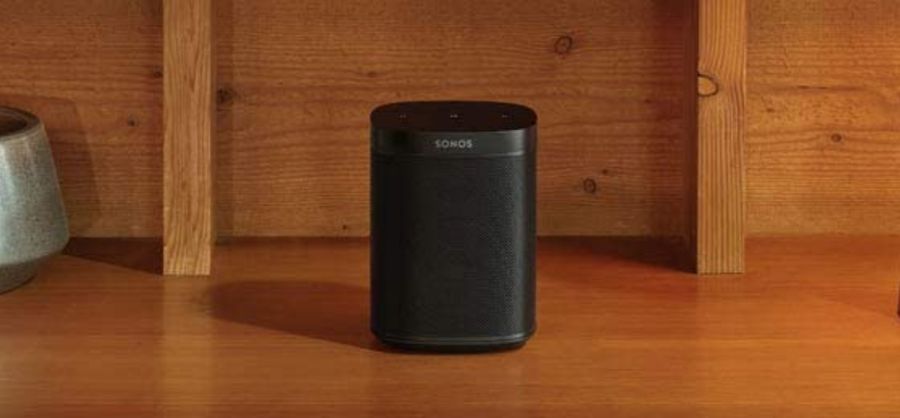
With so many different smart systems available, here are five recommendations for Wi-Fi speakers and my personal favorites in this category:
- Amazon eero mesh Wi-Fi system (3-pack) with Echo Dot
- Marshall Acton II Wireless Wi-Fi Multi-Room Smart Speaker with Amazon Alexa Built-in
- Sonos One SL with Siri and Apple Airplay Capability
- Bose SoundLink Revolve WiFi with 360 Wireless Sound
- Ultimate Ears BLAST Portable Waterproof Wifi and Bluetooth
Wired Speakers
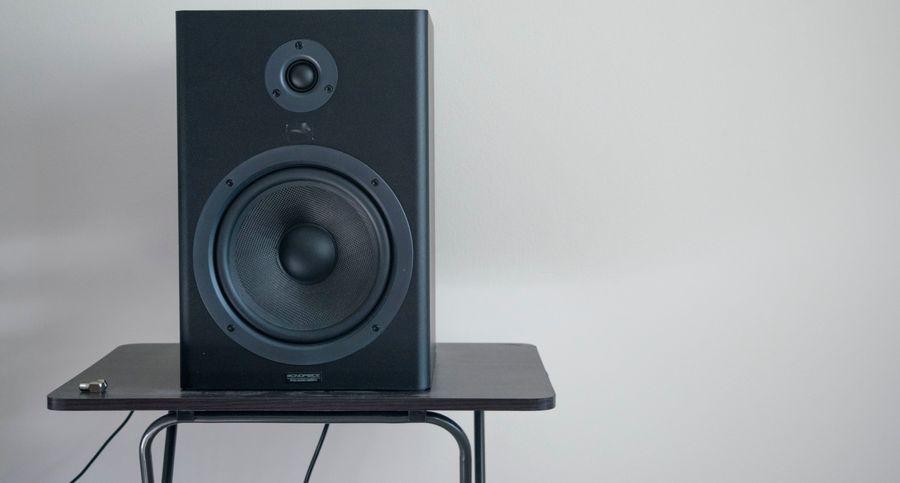
The tried and true method for audio listening has always been wired speakers. From their humble beginnings back in 1926, wired speakers have been able to transmit higher amounts of data using a physical wire and create more excellent sound quality. Despite the advancement of technology with wireless speakers, audiophiles still argue that the sound quality of a wired speaker is supreme.
How Do They Work?
According to Sound Guys, wired speakers work in the same fashion as their wireless counterparts. The main difference is the use of an external amplifier, rather than a built-in one. Wired speakers take electric power and transfer it through the wire. This wire leads to an amplifier, which boosts the electronic signal into a power source to push and pull the speakers to create sound waves.
It may sound very technical (and it can be), but the main takeaway is that wired speakers are useless without some form of an amplifier. Some wired speakers may have them built-in, but most lean on an external amp to produce sound.
Pros of Using Wired Speakers
With their long history of use, it is no wonder why people still prefer wired speakers over their wireless counterparts.
Most audiophiles, like The Master Switch, will credit the following advantages of wired speakers as to why they refuse to go wireless:
- Complete Auditory Control – Because amplifiers, subwoofers, and other auditory accessories are, for the most part, external for wired speakers, having complete auditory control is a huge advantage.
- Easy setup – Instead of having to deal with internet networks or Bluetooth chips, wired speakers only need a speaker wire to be connected for them to work. Of course, this can become a bit complicated with the more accessories you want to add.
- Highest Audio Quality – Since the signal is a direct, physical link from the source to the speaker, there is no data loss. This means wired speakers can deliver the highest audio quality possible.
Cons of Using Wired Speakers
Despite their favoritism in the audiophile world, wired speakers still have their flaws. Most come down to physical aspects and can sometimes be negated with more outside resources, but the disadvantages should still be considered.
Here are some of the disadvantages of wired speakers:
- Wires – No surprise here that the first significant disadvantage is the wires. Not only can they become a nuisance to deal with, especially if they begin to fray, but they can also be unsightly with your setup.
- Potential Blow Outs – Because the amplifier is external, you have to make sure you purchase the right power level. Otherwise, you seriously risk blowing out your speakers and amp. Luckily, it takes a large amount of power to do this.
- Expensive Add Ons – Between the separate amp, DAC, subwoofer, LFE, and any extra speakers you want for your system, the price can quickly add up.
Audio Quality
The beauty and appeal of wired speakers come down more to the control aspect rather than the audio quality. Perhaps years ago, the argument that wired speakers were better than wireless would have stood, but with today’s technology and built-in DACs, this simply is not true anymore.
Wired speakers can transfer the most amount of sound data directly to the speakers. So technically speaking, wired speakers have the best audio quality available. However, it will mostly come down to the speaker add-ons you invest in.
Recommendations for Wired Speakers
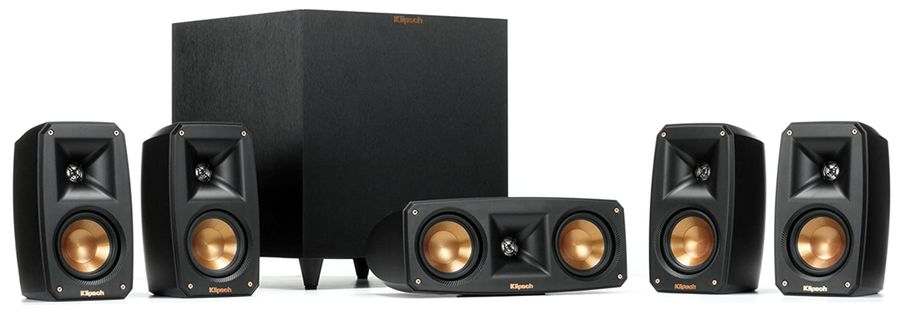
Since they have been around the longest, wired speakers have the most extensive range of styles and power capabilities. To help get you started, here are some of my favorite suggestions for wired speakers:
- Klipsch Black Reference Theater Pack 5.1 Surround Sound System
- Polk Audio T15 100 Watt Home Theater Bookshelf Speakers (Pair)
- Dual Electronics LU43PB 3-Way High Performance Outdoor Indoor Speakers with Powerful Bass
- Bose Companion 2 Series III Multimedia Speakers
- Polk Audio Atrium 5 All-Weather Outdoor Speakers with Powerful Bass
Which Works the Best?
Since there is no real difference between audio quality from wireless to wired speakers, the question of, “what works best?” becomes that much more complicated. The best speaker solution will depend on multiple factors based on what the user needs the speakers for.
These main factors are:
- Number of Speakers
- Ease of Use
- Loudness
- Aesthetics
- Use of Speakers
Number of Speakers
The first factor needing consideration is the number of speakers you want to use. This usually comes down to price, but even that can sometimes be negated as technology allows for more complex systems to enter the consumer market.
The general rule of thumb for each is:
- Wired speakers need a minimum of two speakers.
- One speaker for each channel.
- Add another speaker for each boost needed.
- Wireless speakers depend on room size.
- The larger the room, the more speakers you will need.
- The rooms that you spend the most time in will benefit from having the most speakers in them.
Ease of Use
Of course, you want to make sure the type of speaker you are purchasing is not too complicated where the setup and use stop your enjoyment! There are a few different situations and technical knowledge that should be considered when purchasing your next set of speakers.
In general, you should consider the following speakers based off of sound knowledge:
- If you are a complete beginner, you should consider Bluetooth speakers as they only need a Bluetooth chip to start working. The setup can take anywhere between 30 seconds to 3 minutes, but they are incredibly beginner-friendly!
- If you are intermediate, you should consider Wi-Fi speakers as they can become a bit confusing with the added step of connecting to a network system. The setup can take anywhere between 10 to 15 minutes, but they will allow for multiple speaker control!
- If you are an audiophile, you should consider wired speakers as they give you complete control over the audio levels and sound quality. The setup can take anywhere between 30 to 40 minutes, but it is worth it to customize your EQ to your liking.
Loudness
The Master Switch defines loudness as the, “…sound pressure level, or SPL, a measure of how many decibels are pumped out at a given volume.” What this means is that your speakers have a maximum amount of pressure they can handle before it builds too much, causing a blowout.
The more SPL your speakers can handle, the louder your output sound can be. This can be important to consider when purchasing speakers as you do not want to spend extra for a system you cannot use.
For example, if you live in a smaller apartment, purchasing a speaker with a higher SPL is unnecessary, as you only need to fill a small room. Oppositely, if you are trying to fill an entire home theatre system with a few speakers, you will want to find ones that can handle the intense SPL.
As the room you are trying to fill with sound gets larger, so should the number of SPL your speakers can handle.
Aesthetics
Aesthetics simply means the overall look of something, and there is nothing more important in a speaker decision than if you are okay with the look of wires or not.
- If you do not mind having wires show from your speaker setup, then you should opt for wired speakers. If you want to have wired speakers but not the mess that comes with the wires, you can always try to cover them with a cable runner or hide them with furniture or decorations.
- If you do not want to handle any wires, Bluetooth speakers are your safest choice. The reason for choosing Bluetooth speakers and not Wi-Fi speakers is that most Bluetooth speakers have batteries or some type of rechargeable system. This means you will not have to deal with any wiring while using them.
Wires aside, you should also consider the look of the speakers themselves. Because wired speakers are assumed to be placed and not moved, they tend to be larger. Conversely, Bluetooth speakers are assumed to be used while traveling or out somewhere without outlets, so they are designed to be smaller. Right in the middle are Wi-Fi speakers, usually sized for hanging on a wall or sitting on a shelf.
Use of Speakers
Although technically you can use any type of speaker for any use, there are advantages to using some over others. You should consider the use of your speakers to answer the question, “what speaker works best?”
- If you are out traveling or somewhere without outlets, you should be using Bluetooth speakers. They are portable, usually rechargeable or battery-operated, and have a lower SPL so you won’t disturb your neighbors!
- If you want a full house speaker system, you should be using Wi-Fi speakers. Most are smart system capable, which means you can control all the speakers from one convenient app. Plus, you will be able to have multiple devices streaming onto separate speakers.
- If you are looking for a surround sound entertainment system, you absolutely should be using wired speakers. With the ability to add in multiple amps, subwoofers, and Low-Frequency Effects (or LFEs), you can completely customize the audio levels and enjoy the highest audio quality. On top of all of that, you do not want to risk losing connection halfway through a movie!
In Conclusion
The great debate over what type of speakers ranks supreme over the others for home gadgets will never cease, especially with the advancement of technology closing the gap between wired and wireless. To honestly answer the question, “what type of speakers work the best?” you will have to address all the factors listed to get an accurate response.
However, the best working speaker system will always be wired speakers. Their ability to transfer massive amounts of sound data physically from source to device without any interruptions will always put them at the top of the list. Just be sure to invest in a good set of amplifiers and subwoofers to complete the whole system for the highest quality sound.
